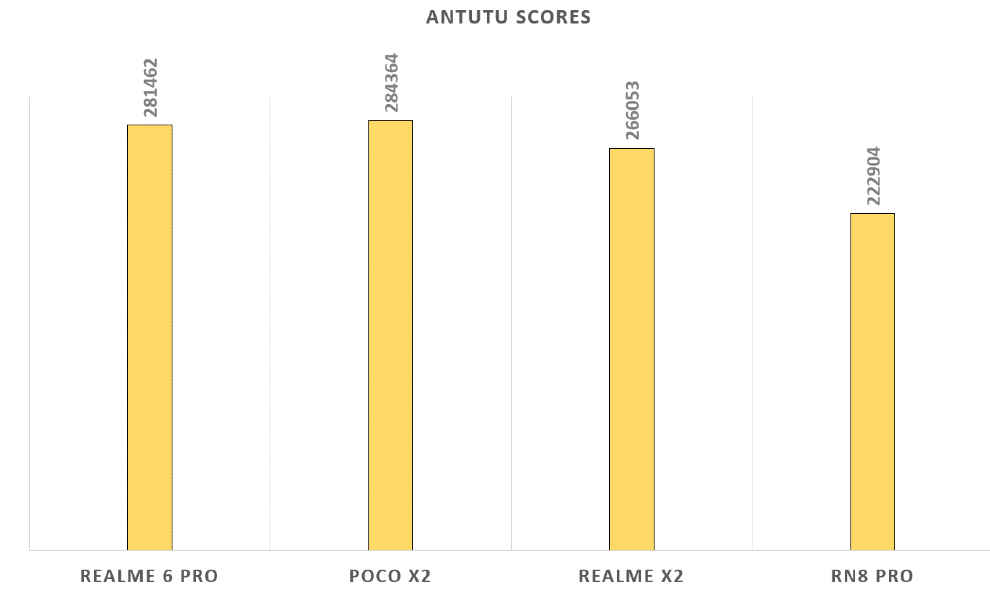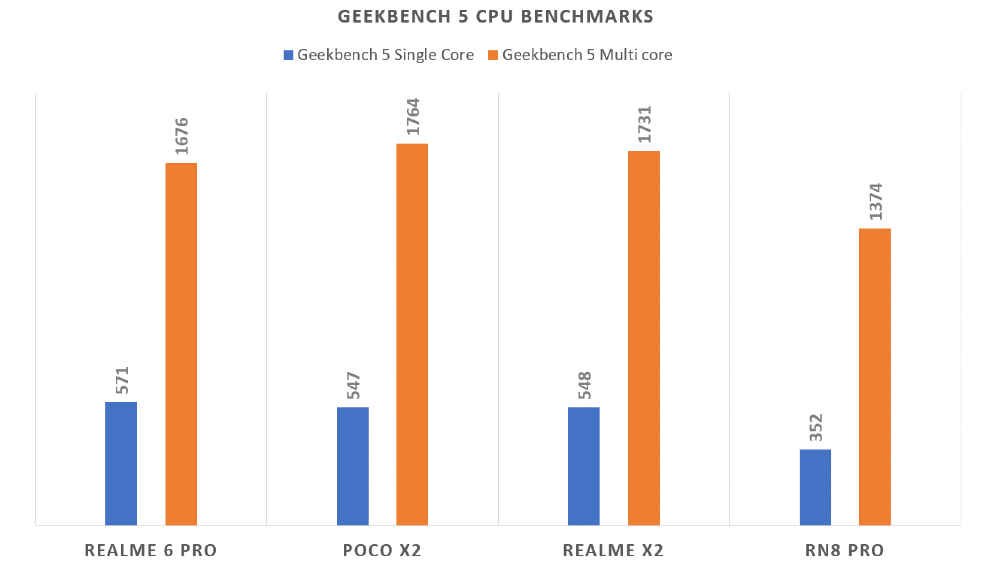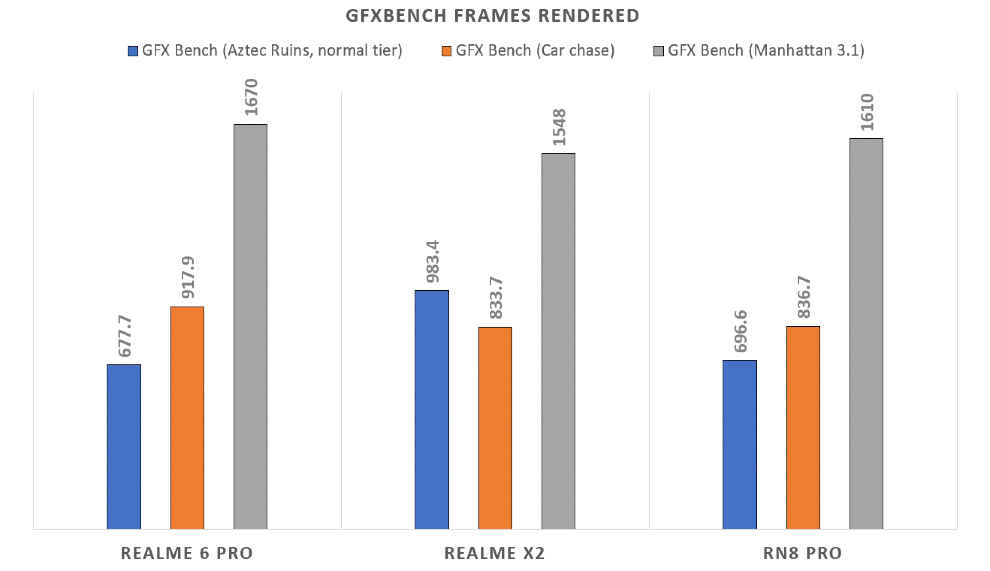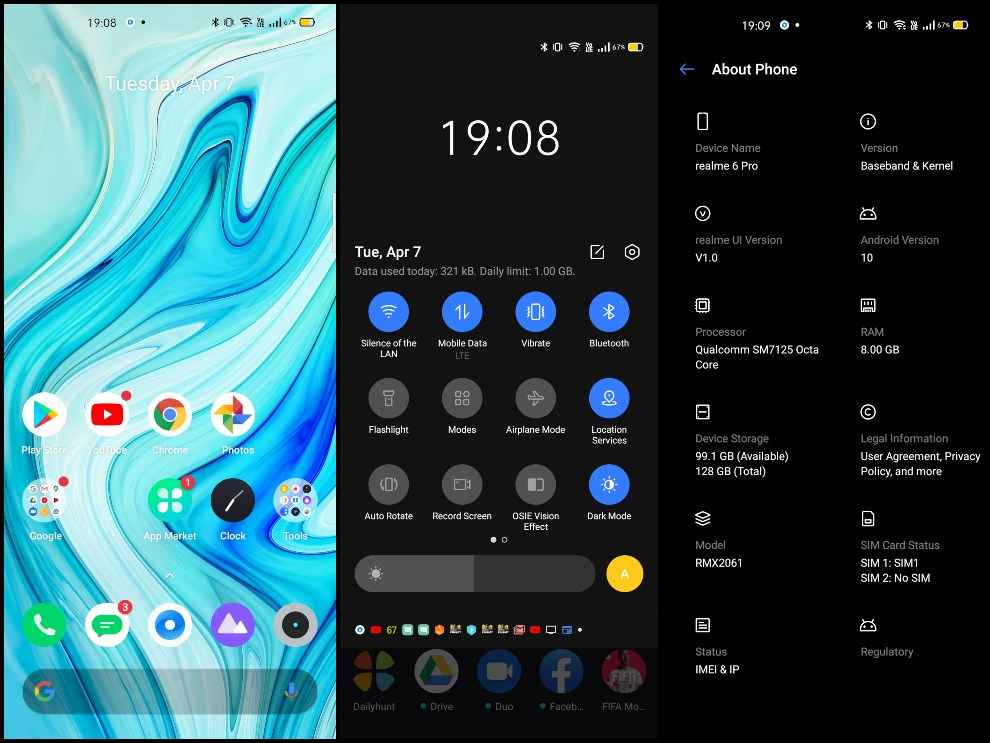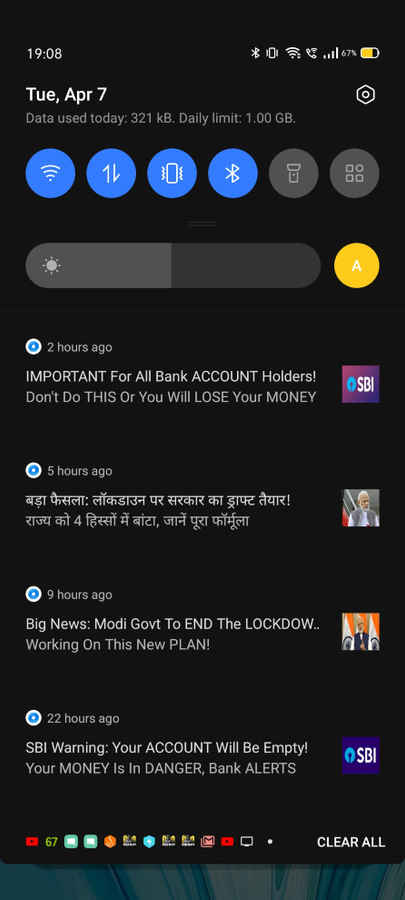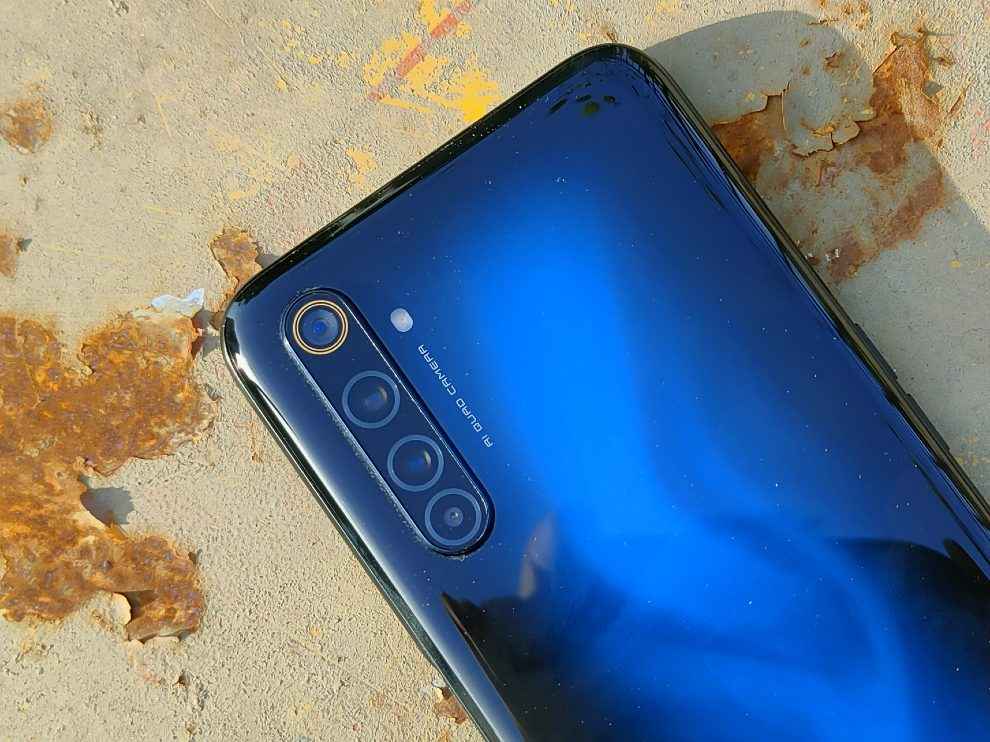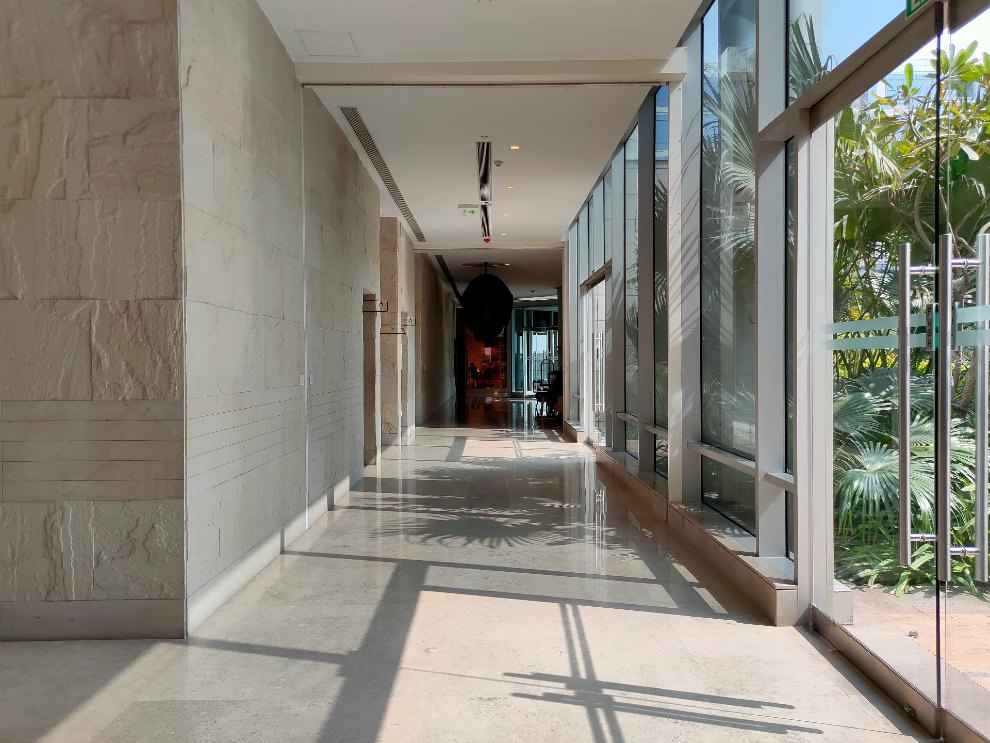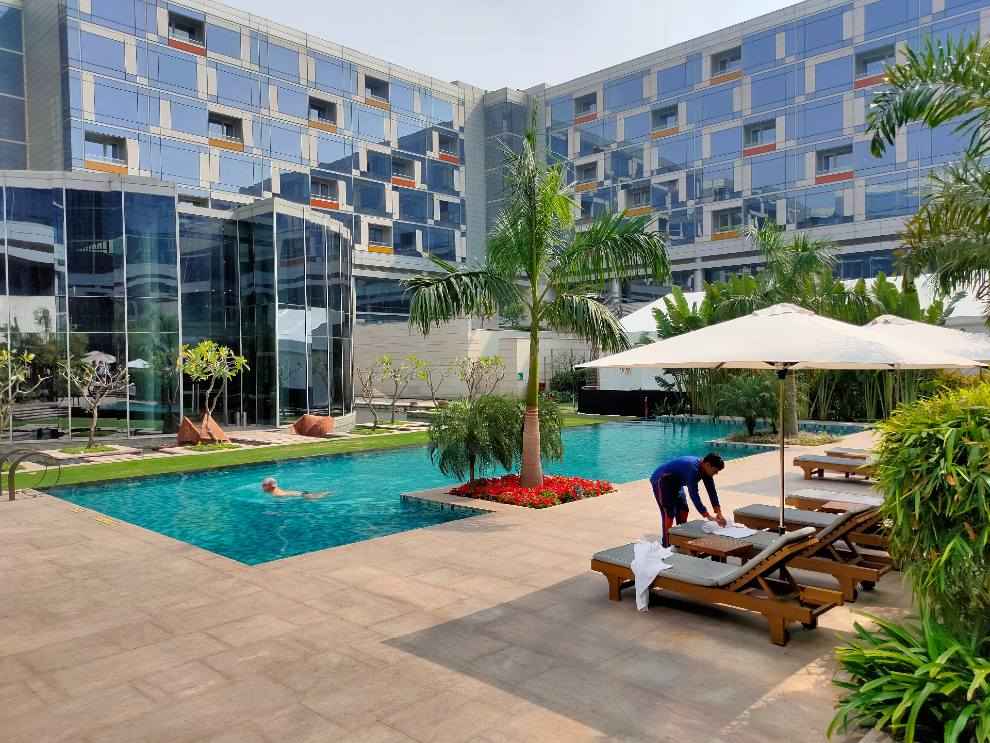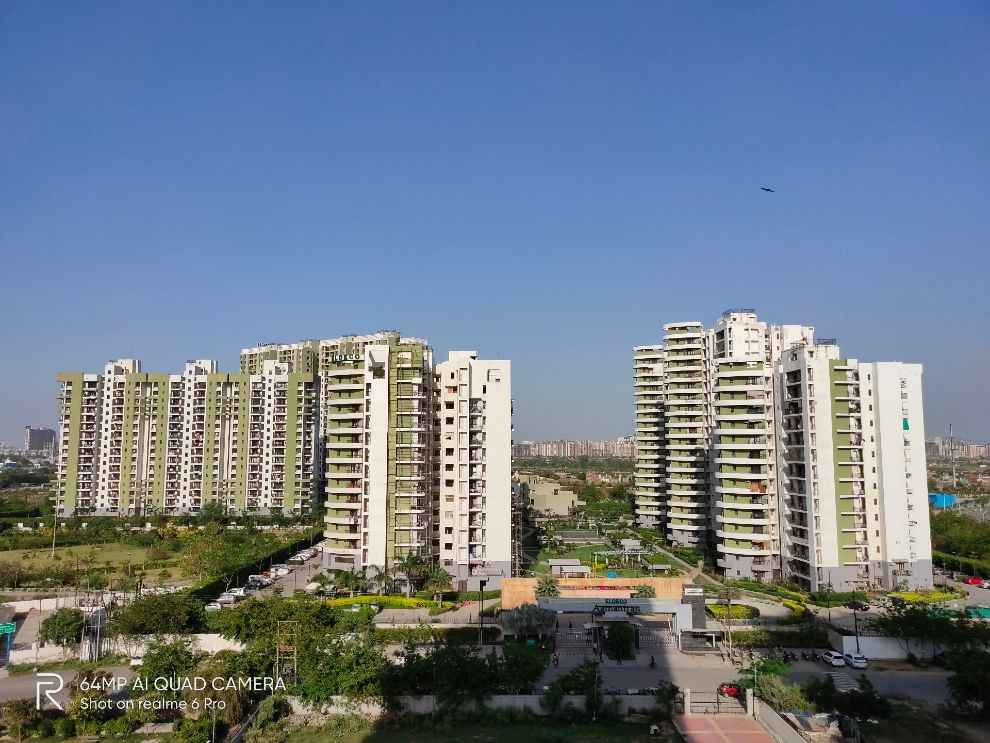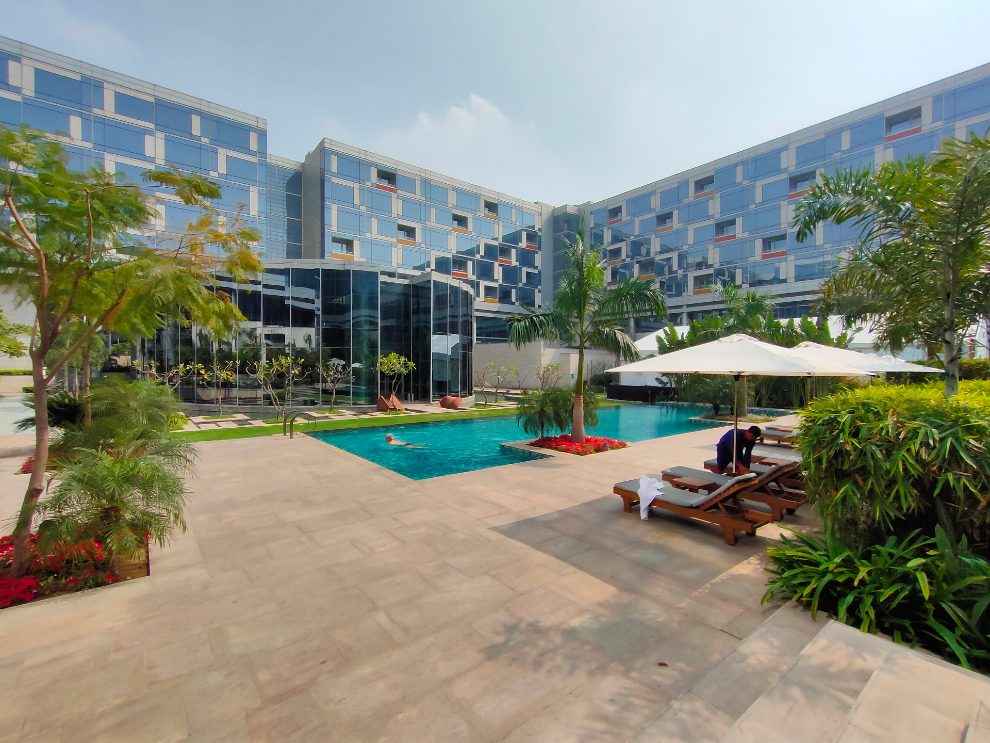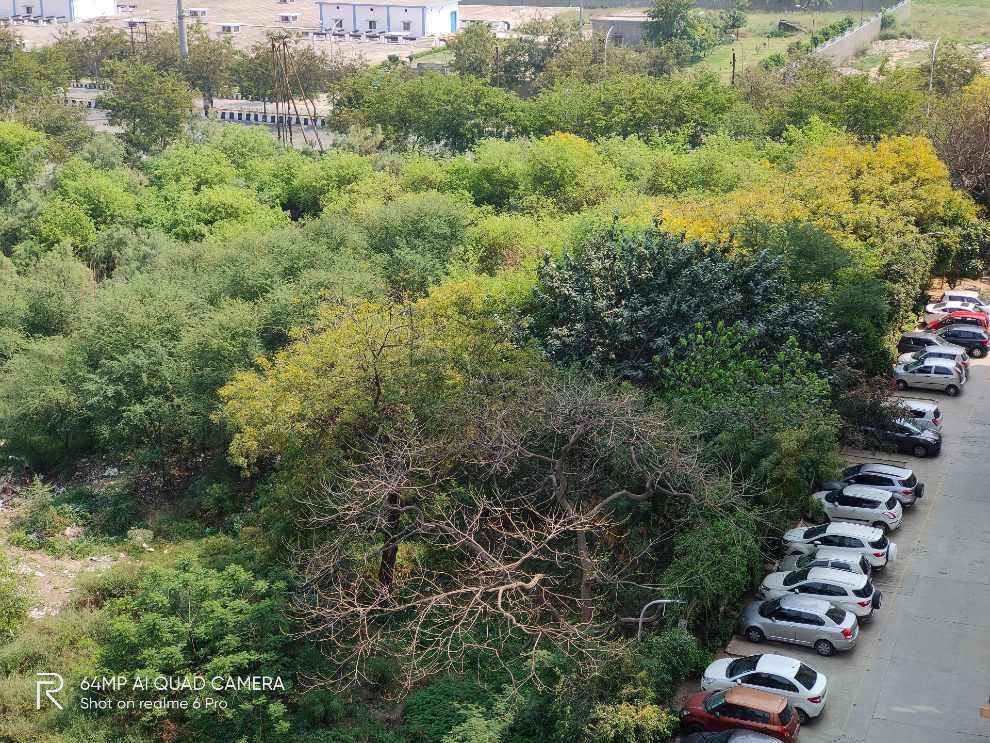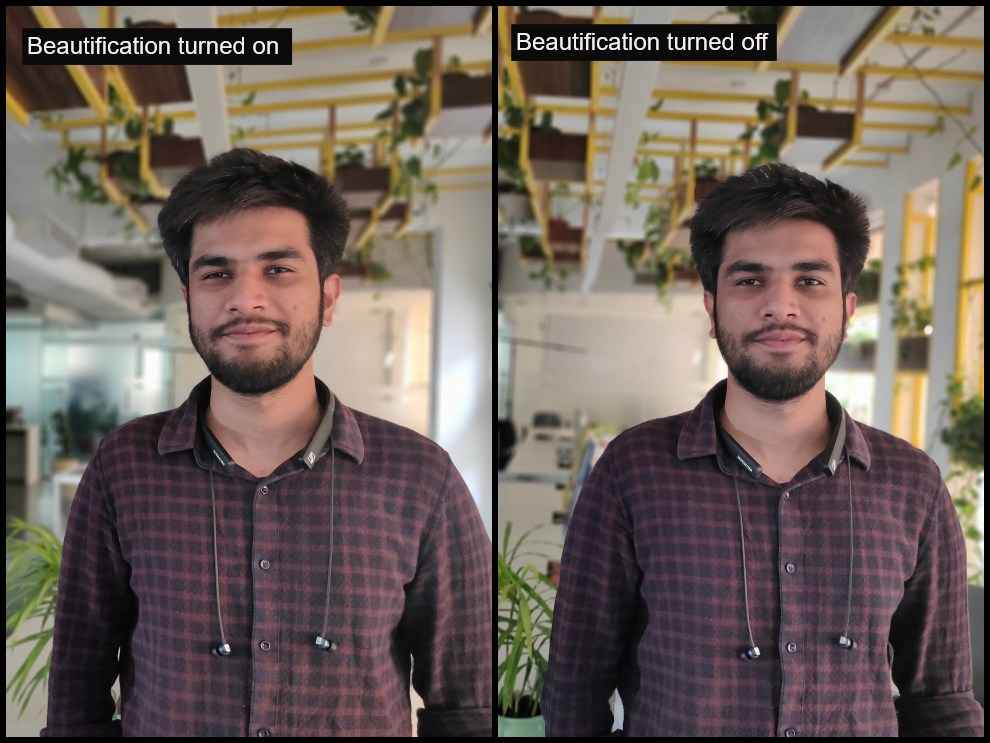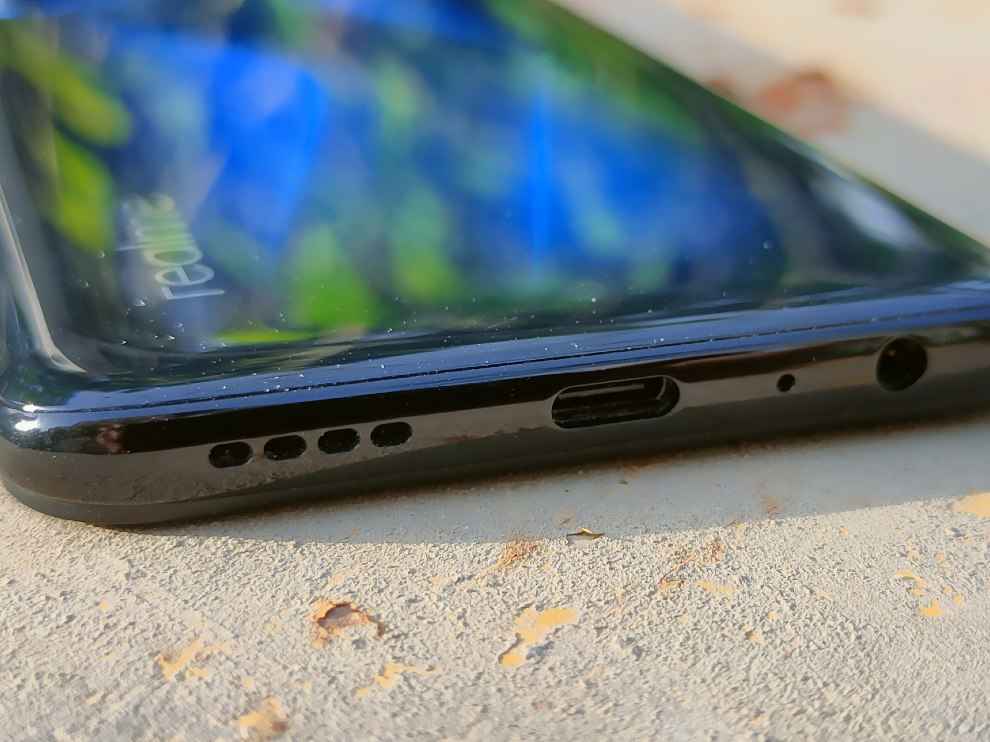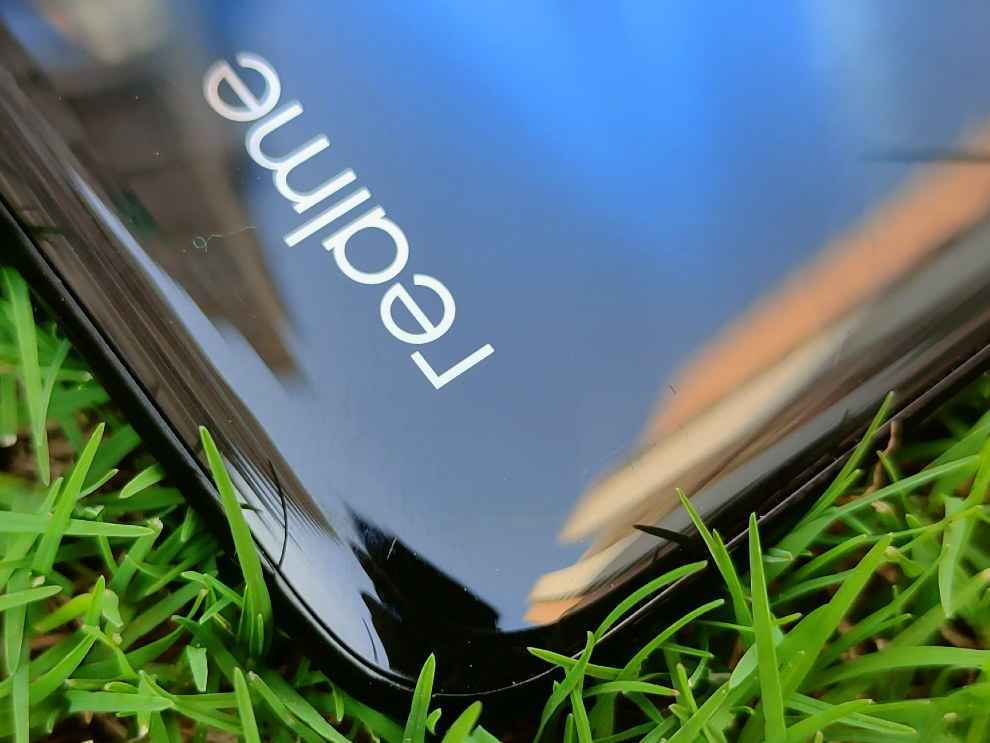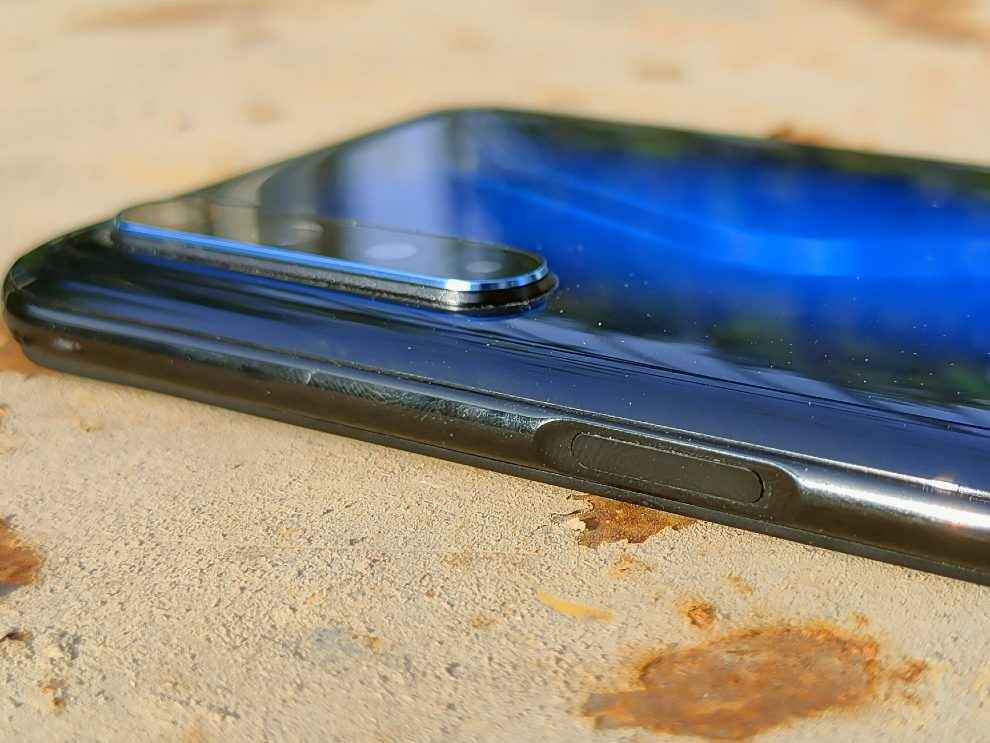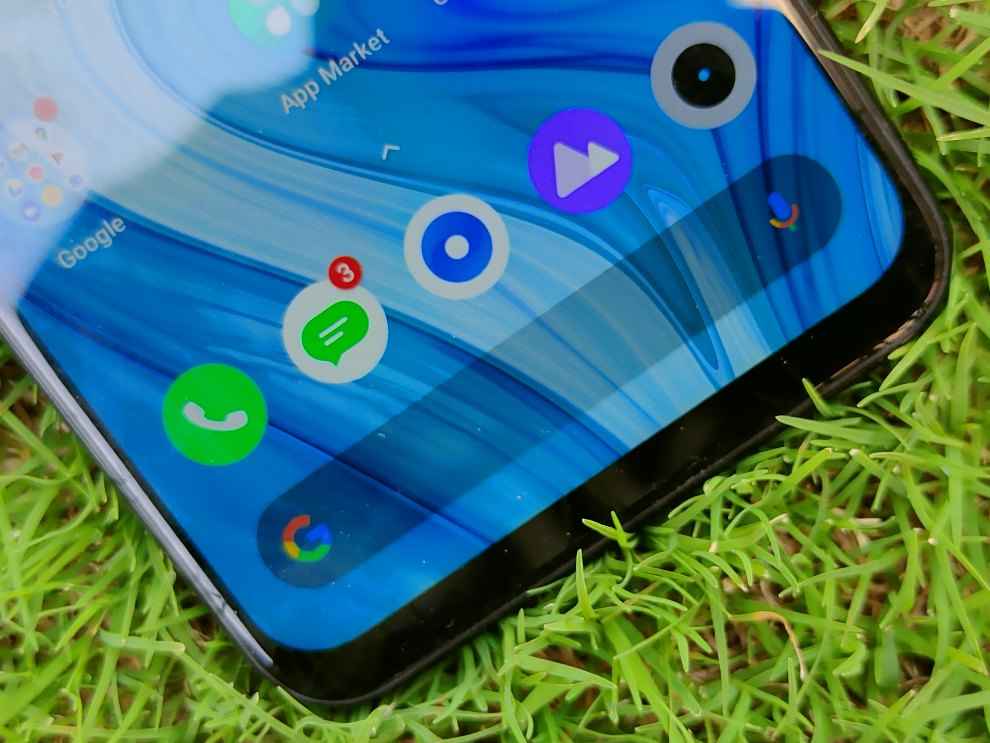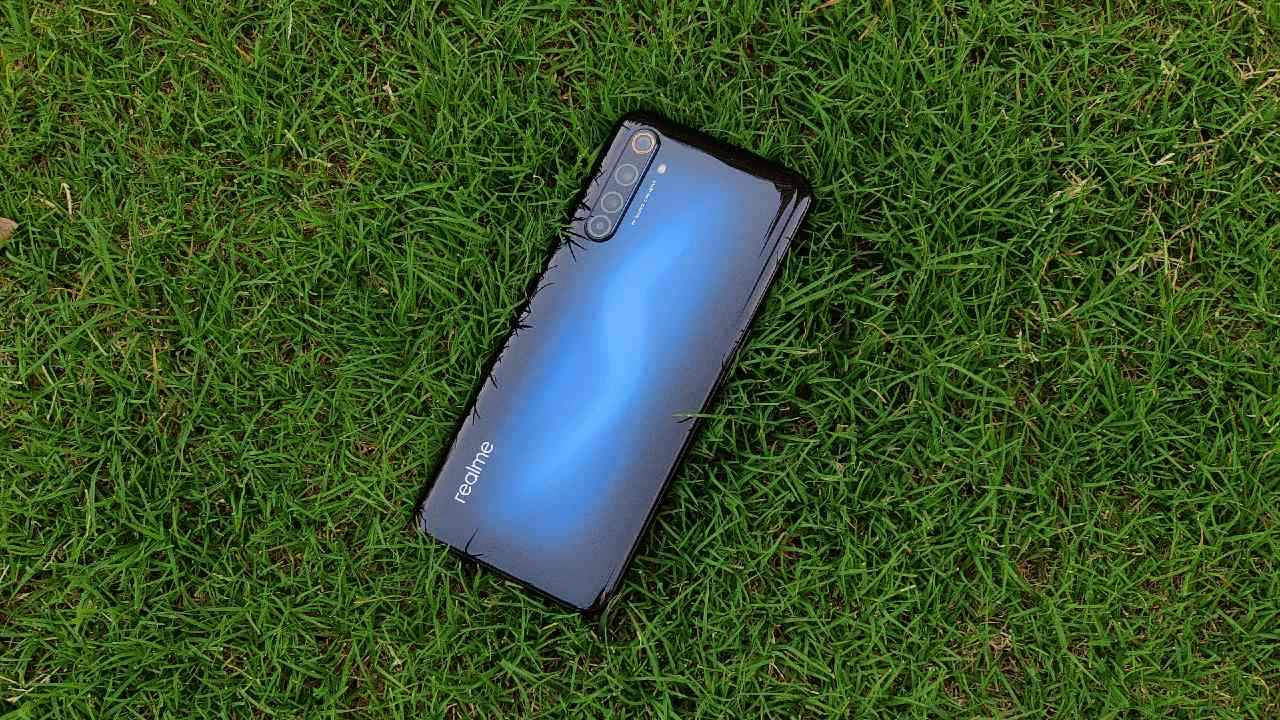
The Realme 6 Pro comes across as a well-rounded device with the right mix of hardware that adheres to the latest market trends. A high refresh rate display, a gaming-oriented processor, multi-camera setups and more makes the Realme 6 Pro an enticing buy. The Realme 6 Pro offers a consistent camera performance, long battery life and decent gaming.
Even before there were 5G flagships, it’s Realme’s Pro series that really plastered its name in people’s minds. The Realme Pro smartphones were probably one of the few smartphones that could compete toe-to-toe with Xiaomi’s offerings at that time. Now in its fifth iteration, the Realme 6 Pro takes on the Poco X2 and a Redmi Note 9 Pro along with some of its own siblings like the Realme X2. Now this is also the first Realme number series with the Pro tag to go beyond Rs 15,000. Is the hike justified? Among many other choices, Is the Realme 6 Pro the one you need? Let’s find out —
Performance
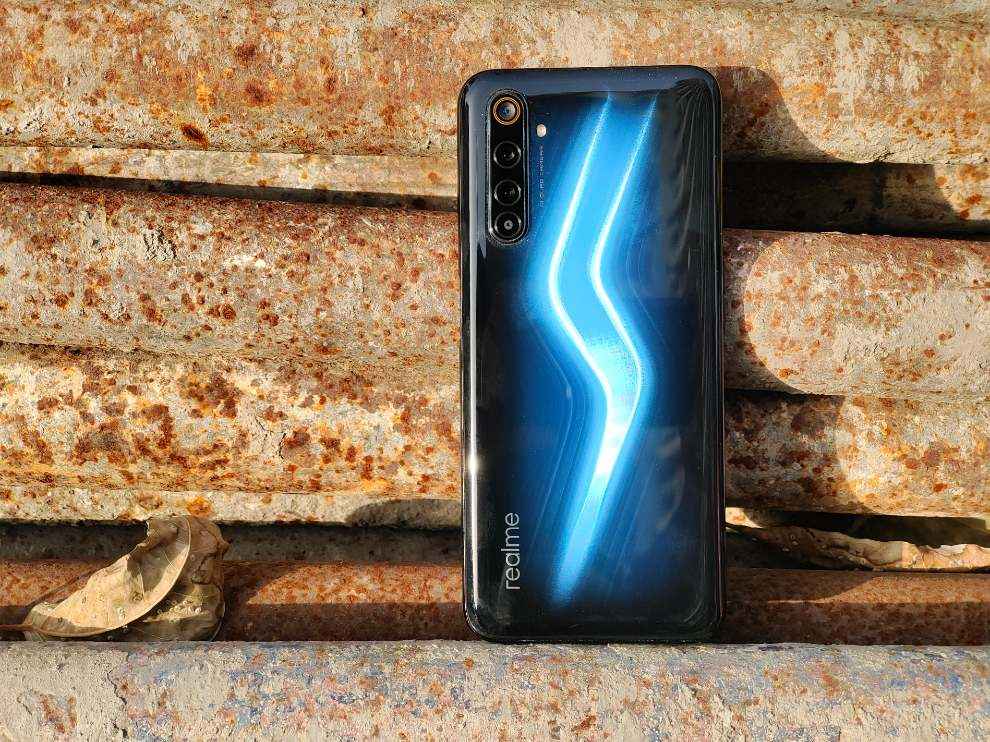
The Realme 6 Pro is powered by the new Snapdragon 720G. It’s a mid-range chipset based on an 8nm manufacturing process and features Kryo 465 Gold and Silver cores clocked at up to 2.3GHz. The SoC comes with an Adreno 618 GPU which is also present in the Snapdragon 730G. The G in the name entails Qualcomm’s Elite Gaming suite of features. Additionally, there’s up to 8GB LPDDR4X RAM and 128GB UFS 2.1 storage. We received the top-most variant for review and straight off, it feels far too smooth for a mid-range smartphone. Here’s what the benchmarks say —
The Snapdragon 720G performs neck to neck with the Snapdragon 730G. The Realme 6 Pro scored 281462 on AnTuTu, slightly lesser than the SD730G on the Poco X2, while on Geekbench 5 CPU, it scored 571 and 1676 on single and multi core tests respectively. Even on Mobile Xprt and PCMark Work 2.0, there was no telling these two smartphones apart.
The GPU numbers weren’t available for the Poco X2 (Xiaomi decided to play the spoilsport once again!) but comparing the frames rendered on three GFXBench tests show the Adreno 618 on the SD730G is better-performing than the same Adreno 618 on the Realme 6 Pro. Can’t be the same, technically but since Qualcomm doesn’t disclose too much about its GPUs, there’s no telling what’s going on here. For now, GPU performance follows the hierarchy with SD730G offering more for the back than the SD720G, at least as far as the Realme 6 Pro is concerned. Let’s see what happens in gaming —
Gaming

I played Call of Duty: Mobile and PUBG Mobile on the Realme 6 Pro and the results were quite impressive for a phone in this segment. Check out the video for more deets.
Call of Duty: Mobile ran at 60 FPS with a decent 84 percent stability while PUBG Mobile ran at 30 FPS with an impressive 100 percent stability with all settings maxed out. Interestingly, dialing down the graphics on PUBG Mobile pushes it to 40FPS, but it doesn’t touch 60 FPS.
Looking at the CPU performance while gaming, the Snapdragon 720G does seem to have enough resources to push for higher frame rates but the two prime cores were capped at 1.9GHz, whereas it has a threshold of 2.3GHz. But without knowing the GPU performance there’s no way to tell, and GameBench doesn’t show metrics from Adreno GPUs.
Software
The Realme 6 Pro is indeed quite fast from the get go but there are chinks in this armour which seem to be teething issues from the new UI. This one runs on the new RealmeUI which is basically a fork of ColorOS 7, but refined with flatter icons and a more stockUI-ish feel. It’s not really close to how fast a Realme flagship smartphone feels, but you get most of the software features in the Realme 6 Pro. That includes a OnePlus-like focus mode, game space and some impressive privacy-friendly features. Call blocking, personal data protection and payment protection are only some of them.
The app drawer is enabled by default and the 90Hz refresh rate display really makes it feel slick and smooth. Compared to the Poco X2, it’ll feel slightly jumpy, but it’s far smoother than the 60Hz panels we’ve had previously in this price range. There’s also not much of an impact on battery-life at 90Hz refresh rate. I didn’t really see a significant battery drain during my usage.
Now the bad side to this deal. The Realme UI is riddled with preinstalled apps that are mostly duplicates of Google services already offered and common across all Android devices sold outside China. The phone has its own cloud backup service, an app market, a games market and more. These are uninstallable and will flood the notification panel (which also happens to be the first thing you see on the lockscreen) with a barrage of headlines, mostly spam and clickbait. Some of which stink of scams to steal your money! Most of the stinky notifications I got was from the default browser app and you can’t uninstall it.
Camera

What it takes away from an ad-riddled software experience, it makes up for it in terms of the camera performance. This is one place Realme has focused hard with a dedicated cross-border imaging team and the results show in their camera tuning. There are a total of six cameras on the Realme 6 Pro. Four at the back and two drilled into the display. All six of them work independently, making it one of the most versatile camera setup on a smartphone in this price range. How are the results? Pretty damn good if you ask me!
Primary Lens – 64MP with 26mm f/1.8 lens
The 64MP primary sensor is the Samsung ISOCELL GW-1, the same sensor Realme has been using its flagship and high-end devices. And the optimisations in place on the Realme 6 Pro results in sharp, well detailed photos with balanced tones, good dynamic range and lots of details.
By default, the camera takes photos at 16MP after binning pixels 4-in-1. The results as you can see are pretty good. I wouldn’t have thought a mid-range smartphone has taken these a year back. If I do have to poke holes, it’d be against Realme’s Dazzle Colour mode. The image enhancing mode seems to have been tweaked to produce more saturation and contrast, often too much. These two photos show how big of a difference it makes
The Dazzle mode does come useful in cases you want to take photos of lush, green landscapes but personally, I’d like to have the choice of adding that extra splash of colour on my photos.
Ultrawide Lens – 8MP with 13mm f/2.3 lens
The 8MP ultrawide lens maintains consistency with the primary camera and applies the same colour tones and sharpness levels which is rare in this segment. The ultrawide mode is also quite responsive and lets you control the object you want to focus. Furthermore, the very little distortion in the photos, which also means a big chunk of the frame is cropped out to stabilise it.
Telephoto lens – 12MP lens with 54mm f/2.5 lens (2x optical, 5x hybrid zoom)
(At 2x optical zoom)
(At 5x hybrid zoom)
The consistency in image quality also extends over to the telephoto lens. It’s adept at capturing detailed textures on far-off objects. We tested it against statues and foliage and the results were above average in both cases.
Macro lens – 2MP with 22mm f/2.4 lens
The 2MP macro lens is the weakest link in this camera setup. It’s the only mode that feels amateurish and seems to have been including for the sake of it. On paper it is able to close-in on objects that are just 4cm away, but the results are hazy, noisy images even under natural light with minimal details.
Portrait mode
The portrait photos are good enough for social media. It uses depth information from the telephoto lens and can produce some sharp photos of fellow humans and pets. Personally, I’d turn off the beauty filter for more realistic results, but that’s just me. The beauty mode will smoothen skin, remove blemishes and make you look fairer.
Lowlight Photos
The Realme 6 Pro uses
Battery life
Despite a gaming-heavy processor, lots of camera sensors and a 90Hz display, the Realme 6 Pro manages to last well over a day. The 4,300mAh battery was a tough nut to crack with our video loop test with the device managing to run well over 27 hours before dying out. Games like CoD: Mobile drained 3 percent battery after 15 minutes of gaming while a 30-minunte binge of Tiger King on Netflix drained the battery by around 4 percent. Both these numbers are on the lesser side, and lesser is better when it comes to battery drop.
The 4300mAh battery also tops up under an hour thanks to the 30W VOOC charger. We managed to get 50 percent of the battery charged in less than 30 minutes which is pretty neat, especially when you have to be on the move most of the day.
Design and display
The Realme 6 Pro is perhaps the best looking device the company has made in this price range. This time, Realme has used glass on both sides, Gorilla Glass 5 to be precise and the finish has a streak of lightning at the back that radiates as light shines on it. Stellar stuff, and I believe a lot of people may buy it based on the looks alone.However, the frame itself is polycarbonate with thick reinforced edges. The screen stretches dangerously to the edges though, so any drop might end up damaging the panel, Gorilla Glass or otherwise.
The Realme 6 Pro also feels firm and sturdy in hand. The screen size may have increased but the body itself feels compact and can be used on the go. The side-mounted fingerprint sensor has its pros and cons. The good part is you press the power button and scan your finger at the same time making the unlock process near-instant if done right. And it's scarily accurate. The Fingerprints section in the Settings app has two options – Light Touch and Firm Touch. With the former, even the gentlest press will trigger the scanner while the latter needs you press slightly harder, which in my opinion is the better option to prevent accidental unlocks. Which you will get while using the side-mounted fingerprint sensor on the Realme 6 Pro. Just want to peek at your notifications on the lockscreen? Nope. Home screen it is. There needs to be way to make it contextual.
Speaking of which, the 90Hz display is fast and smooth but it’s not the brightest. I struggled to read text on the screen under the sun and the colours looked all faded. Indoors, it's just too vibrant. The panel is at the vivid screen mode by default which explains the punchy colours. You can tone it down a bit if you want by selecting the 'Gentle' screen mode..The panel also has a cooler tint which becomes more obvious using the dark mode.
Bottomline
The Realme 6 Pro comes across as a well-rounded device with the right mix of hardware that adheres to the latest market trends. A high refresh rate display, a gaming-oriented processor, multi-camera setups and more makes the Realme 6 Pro an enticing buy. And in it's quest of being in vogue, the Realme 6 Pro goes over the Rs 15,000 mark. More than that, a big downside to recommending the device are the pesky ads and notifications that flood the phone within hours of use. The Realme 6 Pro offers a consistent camera performance, long battery life and decent gaming.

